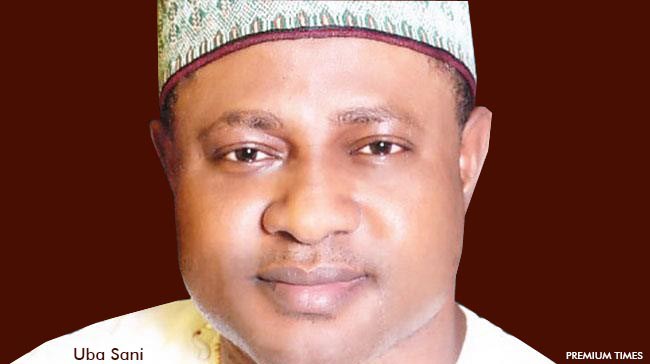Poverty, Unemployment Driving Insecurity in the North — Gov. Uba Sani
Governor Uba Sani of Kaduna State has attributed the persistent insecurity in northern Nigeria to widespread poverty, unemployment, and the lack of essential infrastructure such as schools, hospitals, and commercial activities in rural areas. He emphasized that political leaders must take full responsibility for addressing these issues.
Governor Sani made these remarks at the public presentation of Where I Stand, a book authored by the late Sheikh Abubakar Mahmud Gumi and translated into Arabic by Sheikh Ibrahim Jalo Jalingo. The event, organized by Jama’atu Izalatul Bid’a Wa Iqamatus Sunnah (JIBWIS), was held on Saturday, where Sani represented President Bola Tinubu as the Special Guest of Honour and also served as Chief Host.
He cautioned against politicising the issue of insecurity, particularly the narrative that bandits can be eliminated through military force alone.
“The insecurity in the North-West differs from the Boko Haram insurgency in the North-East, which is ideologically driven,” Governor Sani said. “Here, the root causes are poverty, unemployment, and the longstanding neglect of rural communities.”
He argued that security challenges cannot be solved solely with weapons, stating, “Anyone suggesting that guns alone can solve this problem is playing politics. We must fear God and stop misleading our people — that approach will not work.”
Governor Sani highlighted the dwindling number of security personnel in the face of Nigeria’s rapidly growing population.
“In 1970, shortly after the civil war, Nigeria had about 300,000 soldiers. Today, that number has dropped to less than 250,000, even though our population has grown by over 100 million. How can anyone claim that firearms alone will solve the problem? It’s simply not possible,” he said.
He also lamented the lack of security presence across large parts of the North-West.
“If you travel through Zamfara, Birnin Gwari, or the forests of Katsina, you could go as far as 50 kilometres without encountering a single policeman, let alone a soldier. Vast areas of our country have no security personnel at all,” he added.
Governor Sani pointed to the Kaduna Peace Model as a more holistic, community-based strategy for addressing insecurity. This approach, he explained, focuses on non-kinetic methods and was developed in collaboration with affected communities, traditional rulers, religious leaders, and other stakeholders.
He cited the example of Birnin Gwari, where the Emir played a key role in restoring peace. “We spent six months trying to understand the root causes of insecurity in the area,” he said.
Sani also urged political actors to stop shifting blame to President Tinubu or the National Security Adviser, Nuhu Ribadu.
“We must stop misleading our people by saying President Tinubu or NSA Ribadu is responsible. Are we expecting them to go to Giwa, Birnin Gwari, or the Dansadau forest to solve our local problems? We were elected to protect our people, and that responsibility lies squarely with us,” he said.
“I chose the non-kinetic approach to tackle insecurity in Kaduna because I believe I will be held accountable by God in the hereafter,” he concluded.




